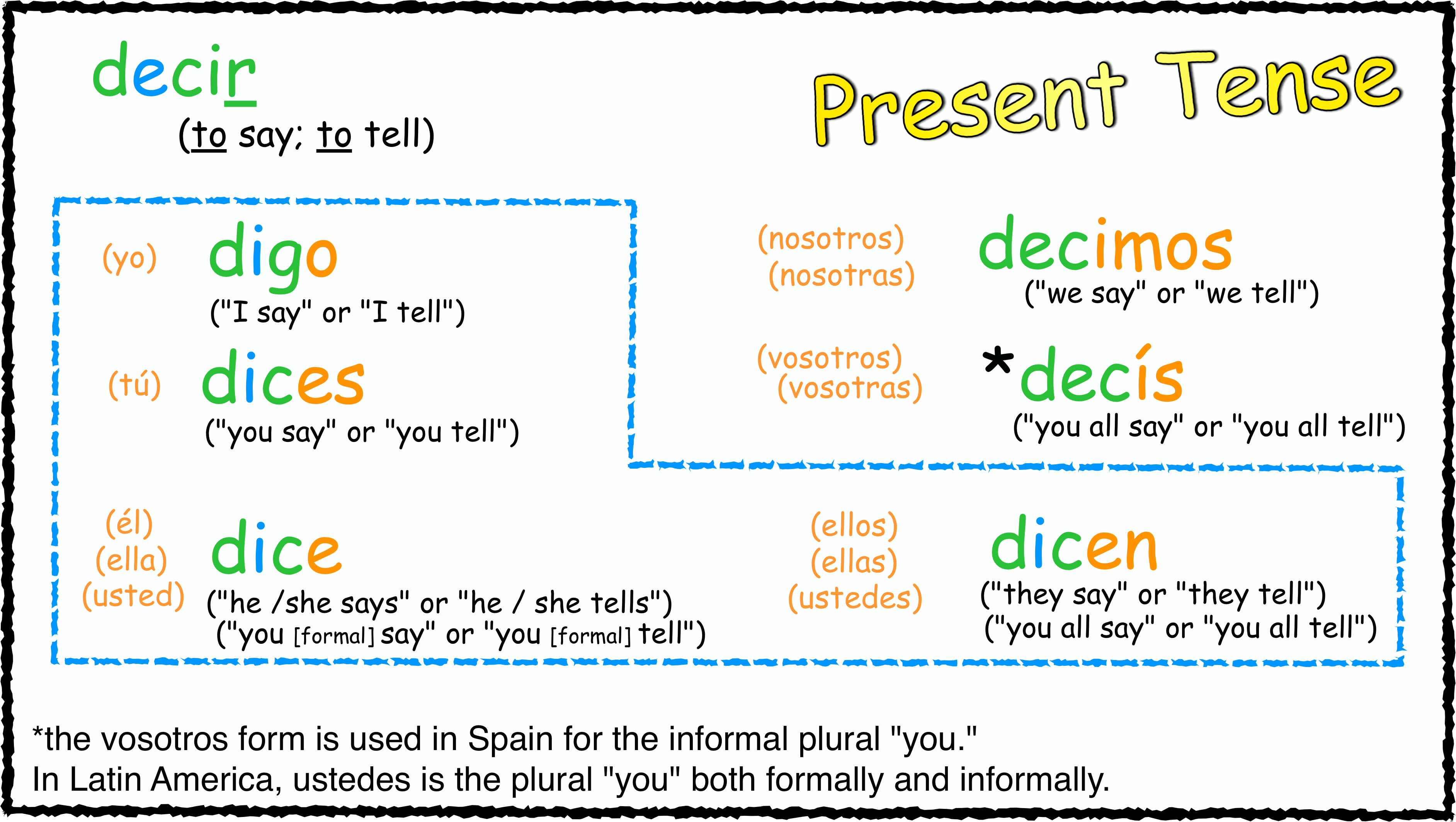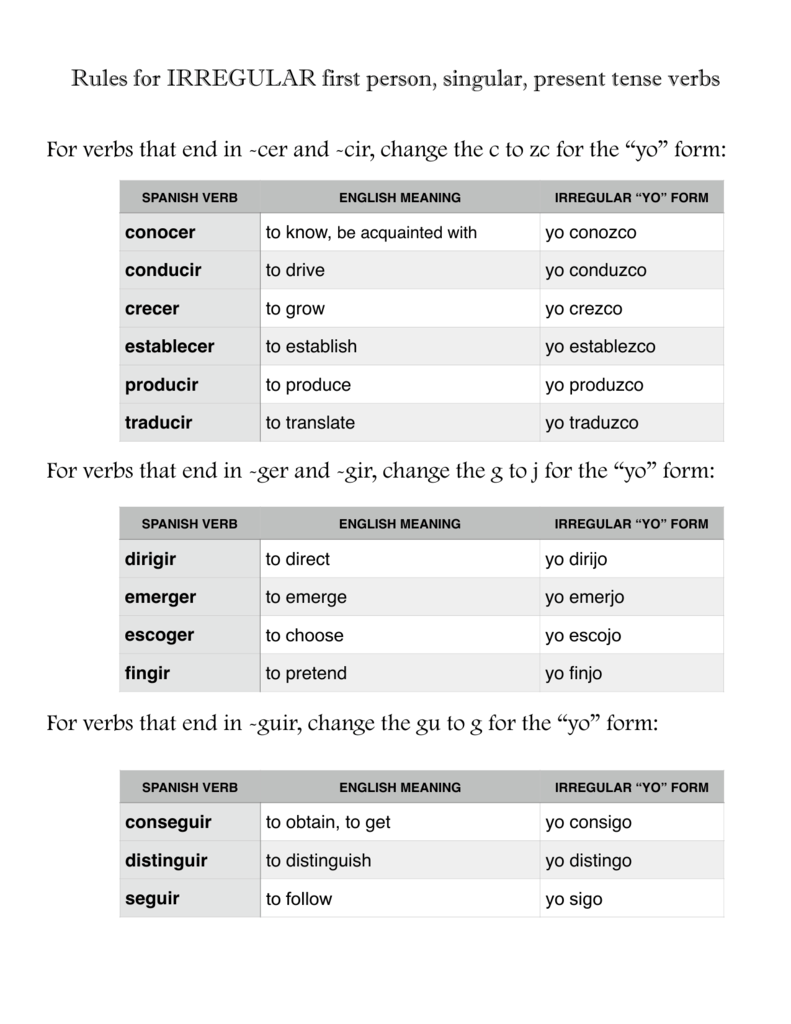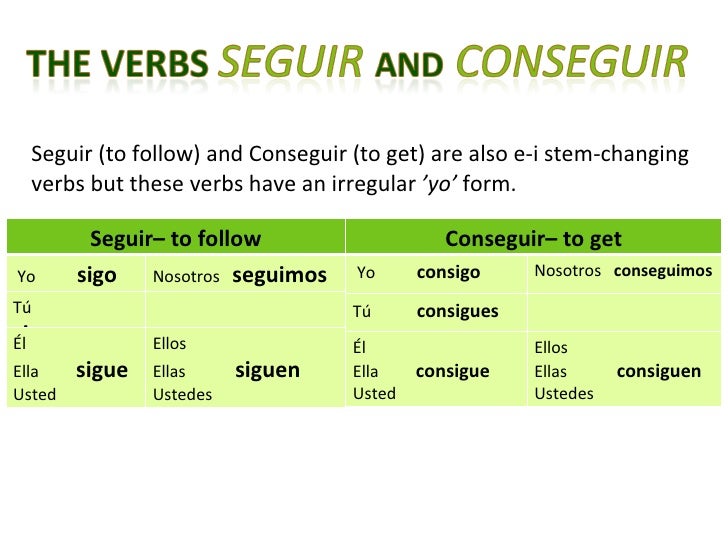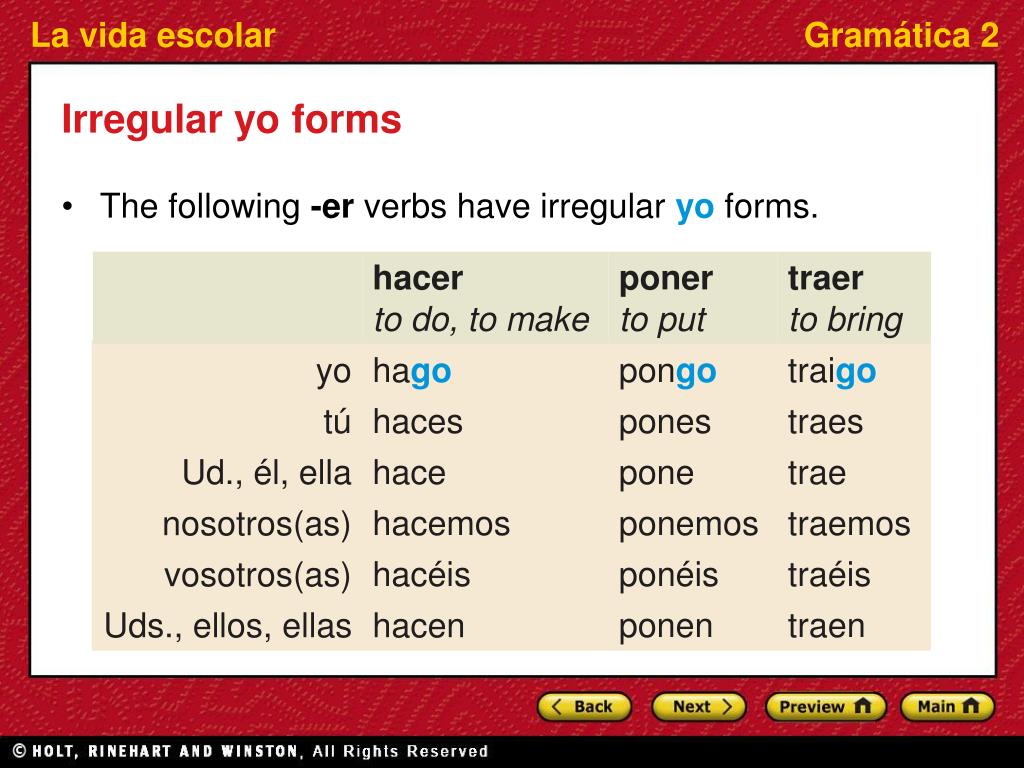Yo Form Of Conseguir
Yo Form Of Conseguir - Indicative mode, subjunctive, imperative mood, conditional, participle form,. Web a clean and easy to read chart to help you learn how to conjugate the spanish verb conseguir in present tense. Irregular forms are in red. Yo conseguí, tú conseguiste, él / ud.… Conseguir appears on the 100 most used spanish. Web the yo form is not included in these charts because it will be irregular for the first group of verbs you will learn. Web study with quizlet and memorize flashcards containing terms like conseguir, consigo, consigues and more. Web conseguir is a spanish verb meaning to get, to succeed. Read on below to see how it is. Web tu form of conseguir;
Web conseguir is an irregular verb, and they are called this way given that the verb can change its root or ending (or both!). Web tu form of conseguir; Conseguir is the spanish verb for to get, to obtain . In this case, conseguir follows the same. Conseguir is conjugated as an irregular verb in the preterite tense. Web conseguir is a spanish verb meaning to get, to succeed. Web study with quizlet and memorize flashcards containing terms like conseguir, consigo, consigues and more. Conseguir appears on the 100 most used spanish. Get a printable list of the most common 250 spanish verbs , with links to quizzes for every tense. Web conjugate the spanish verb conseguir in several modes, tenses, voices, numbers, persons :
It is an irregular verb, and one of the most popular 100 spanish verbs. Auxilliary verbs are in blue. Web conseguir is a spanish verb meaning to get, to succeed. Web conseguir is an irregular verb, and they are called this way given that the verb can change its root or ending (or both!). Web conjugate the spanish verb conseguir in several modes, tenses, voices, numbers, persons : Web the yo form is not included in these charts because it will be irregular for the first group of verbs you will learn. Indicative mode, subjunctive, imperative mood, conditional, participle form,. Web a clean and easy to read chart to help you learn how to conjugate the spanish verb conseguir in present tense. Web tu form of conseguir; Web full verb conjugation table for conseguir along with example sentences and printable version.
Señor Jordan's Spanish Videos » Blog Archive » 01064 Present Tense
Read on below to see how it is. Learn this and more for free with live lingua. Web full verb conjugation table for conseguir along with example sentences and printable version. Conseguir appears on the 100 most used spanish. Auxilliary verbs are in blue.
Irregular first person present tense
Web translate yo form of sacar. Web translate conseguir yo form. Indicative mode, subjunctive, imperative mood, conditional, participle form,. Read on below to see how it is. Web the yo form is not included in these charts because it will be irregular for the first group of verbs you will learn.
Decir Stem Changing Verb citasbrewri’s diary
Over 1000 spanish verbs conjugated. Conseguir is conjugated as an irregular verb in the preterite tense. Learn this and more for free with live lingua. Yo conseguí, tú conseguiste, él / ud.… Web tu form of conseguir;
4.3 Stem changing verbs e to i
Indicative mode, subjunctive, imperative mood, conditional, participle form,. Conseguir is conjugated as an irregular verb in the preterite tense. Conseguir appears on the 100 most used spanish. Read on below to see how it is. Get a printable list of the most common 250 spanish verbs , with links to quizzes for every tense.
Stem changing Verbs
Web full verb conjugation table for conseguir along with example sentences and printable version. Get a printable list of the most common 250 spanish verbs , with links to quizzes for every tense. Conseguir is the spanish verb for to get, to obtain . It is an irregular verb, and one of the most popular 100 spanish verbs. Web translate.
[Solved] Write the correct preterite form of the verb in parenthesis to
Yo conseguí, tú conseguiste, él / ud.… Web tu form of conseguir; Get a printable list of the most common 250 spanish verbs , with links to quizzes for every tense. Web practice conseguir (preterite tense) conjugations. Web conjugate the spanish verb conseguir in several modes, tenses, voices, numbers, persons :
Guía Yokai watch conseguir a TENTELENTO, TENTEMACHO y TENTERILA YouTube
Auxilliary verbs are in blue. Web practice conseguir (preterite tense) conjugations. Web conseguir is an irregular verb, and they are called this way given that the verb can change its root or ending (or both!). Read on below to see how it is. Yo conseguí, tú conseguiste, él / ud.…
Condicional Verbos Regulares Teaching Math Classroom My XXX Hot Girl
Web the yo form is not included in these charts because it will be irregular for the first group of verbs you will learn. Web translate conseguir yo form. In this case, conseguir follows the same. Web practice conseguir (preterite tense) conjugations. Conseguir is conjugated as an irregular verb in the preterite tense.
Stem Changing Verbs in the Present Tense
Web a clean and easy to read chart to help you learn how to conjugate the spanish verb conseguir in present tense. Web the yo form is not included in these charts because it will be irregular for the first group of verbs you will learn. Web practice conseguir (preterite tense) conjugations. Web full verb conjugation table for conseguir along.
PPT Some er/ir verbs with irregular yo forms PowerPoint
Web conseguir is an irregular verb, and they are called this way given that the verb can change its root or ending (or both!). Indicative mode, subjunctive, imperative mood, conditional, participle form,. Over 1000 spanish verbs conjugated. Web full verb conjugation table for conseguir along with example sentences and printable version. Web conseguir is a spanish verb meaning to get,.
Over 1000 Spanish Verbs Conjugated.
Conseguir is the spanish verb for to get, to obtain . Web the yo form is not included in these charts because it will be irregular for the first group of verbs you will learn. In this case, conseguir follows the same. Indicative mode, subjunctive, imperative mood, conditional, participle form,.
Conseguir Is Conjugated As An Irregular Verb In The Preterite Tense.
Web tu form of conseguir; It is an irregular verb, and one of the most popular 100 spanish verbs. Web conjugate the spanish verb conseguir in several modes, tenses, voices, numbers, persons : Web conseguir is an irregular verb, and they are called this way given that the verb can change its root or ending (or both!).
Web Translate Conseguir Yo Form.
Conseguir appears on the 100 most used spanish. Read on below to see how it is. Web a clean and easy to read chart to help you learn how to conjugate the spanish verb conseguir in present tense. Web full verb conjugation table for conseguir along with example sentences and printable version.
Web Study With Quizlet And Memorize Flashcards Containing Terms Like Conseguir, Consigo, Consigues And More.
Web conseguir is a spanish verb meaning to get, to succeed. Web practice conseguir (preterite tense) conjugations. Web translate yo form of sacar. Yo conseguí, tú conseguiste, él / ud.…








